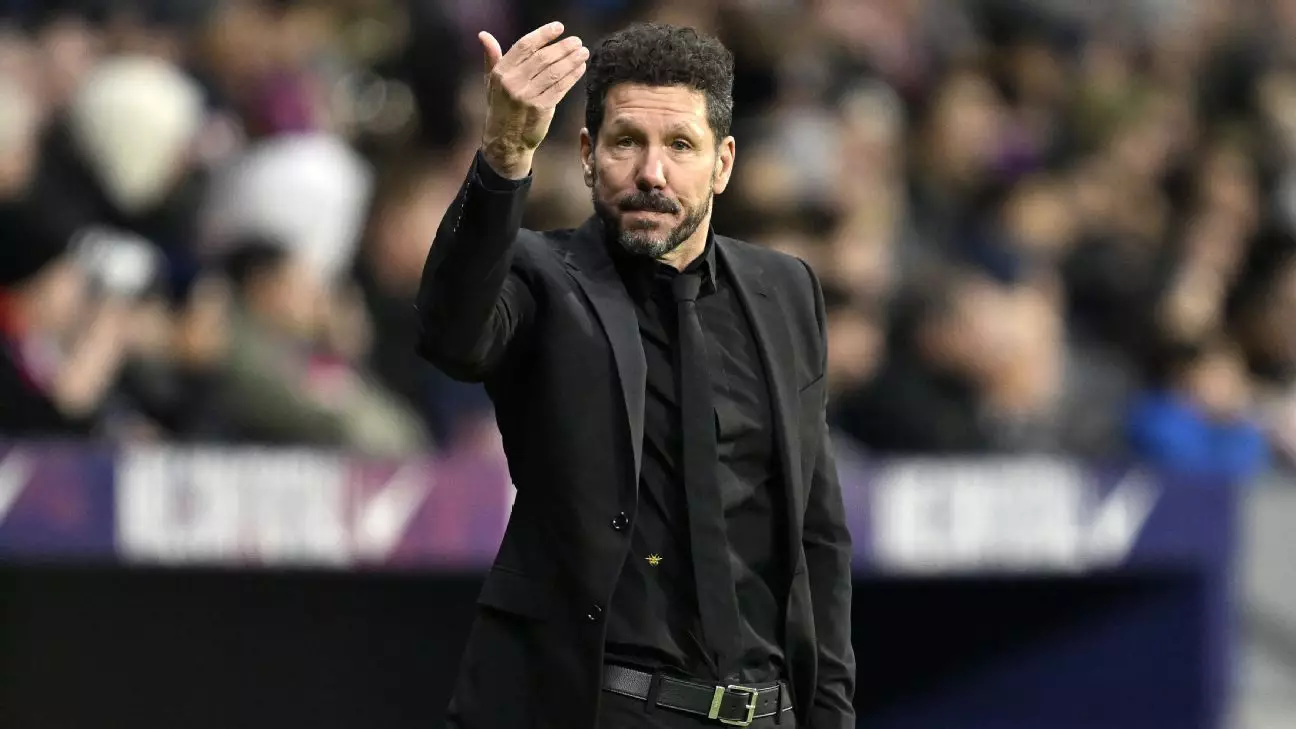The ongoing tensions between Diego Simeone, the head coach of Atlético Madrid, and Carlo Ancelotti, his counterpart at Real Madrid, have escalated into a public feud that echoes through the annals of Spanish football. The heart of this rivalry is laden with historical context, as Madrid has long stood as the most successful club in Spanish football history. Simeone’s recent comments regarding refereeing favoritism for Madrid over the past century suggest a deep-seated frustration not just with contemporary events, but with a legacy that continues to shape the narrative surrounding these two clubs.
Simeone’s remarks emerge in the wake of Real Madrid’s emphatic 5-2 victory against Celta Vigo in the Copa del Rey, where the lack of a penalty awarded to Celta became a focal point for his criticism. This incident reinvigorates the debate about the influence of officiating in high-stakes matches—a topic that has divided fans and pundits alike for decades.
In response to Simeone’s allegations, Ancelotti provided an enigmatic retort, suggesting that some “thorns” could cause pain. This metaphorical jab implies that there are lingering issues from the past that may haunt Simeone, particularly the heartbreak suffered in two Champions League finals (2013, 2016) against their arch-rivals. Such commentary reveals more than just a difference in tactical philosophies; it showcases the psychological battles that accompany high-pressure encounters between two prestigious clubs.
Dani Ceballos, a prominent figure in the Madrid midfield, added to the tension by insinuating that Simeone has yet to move past those painful defeats. This accusation of emotional baggage strikes at the very core of Simeone’s management ethos—his ability to channel adversity into strength for his players. The intensity of these remarks reflects the emotional gravity that accompanies clashes of this nature.
Reiterating his stance, Simeone emphasized the subjective nature of football memories and experiences, particularly when contrasting Ancelotti’s wisdom from his time managing Bayern Munich. By subtly suggesting that Ancelotti’s outlook was different while wearing the colors of another team, Simeone reinforces his argument that perceptions in football are often colored by bias, context, and team allegiance.
His critique of both Ancelotti and Ceballos serves as a reminder that emotions run high in football, particularly when past defeats inform present rivalries. Simeone’s recollection of Ancelotti’s comments after Bayern’s controversial defeat to Madrid illustrates how narratives are crafted and reshaped based on outcomes and realities on the pitch.
As Atlético Madrid sees their impressive winning streak come to a halt, the focus shifts from the pitch to this verbal sparring match. The significance of this rivalry extends beyond individual coaches and players; it encompasses the heart of competitive sport where pride, legacy, and historical grievances converge.
As both coaches continue to navigate this complex landscape, their interactions not only highlight personal animosities but also serve as a microcosm of the broader tensions within Spanish football. The implications of this rivalry will undoubtedly be felt both on and off the pitch as fans eagerly await their next encounters, fully aware that each match is laden with historical weight and emotional significance.

